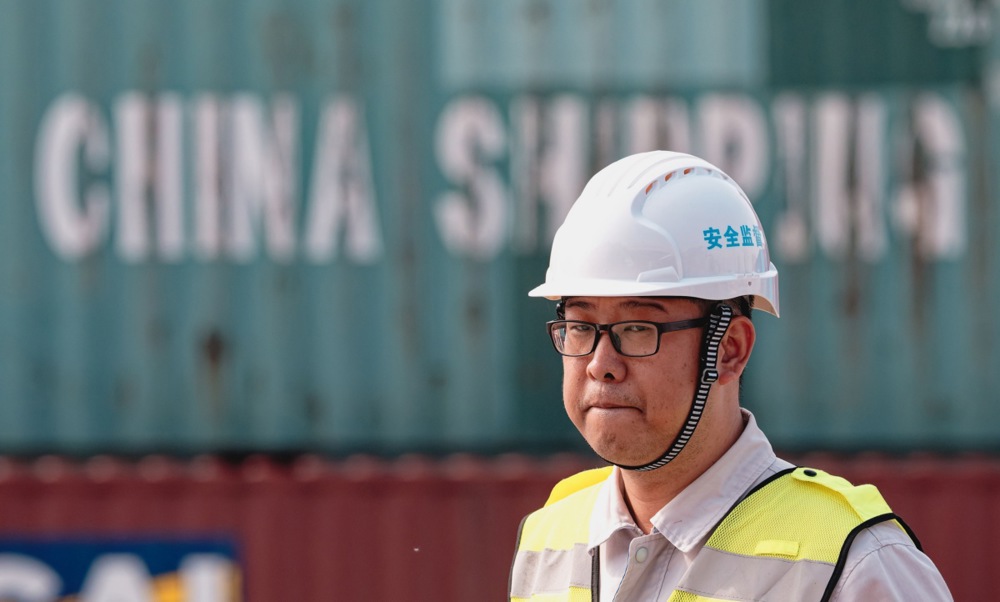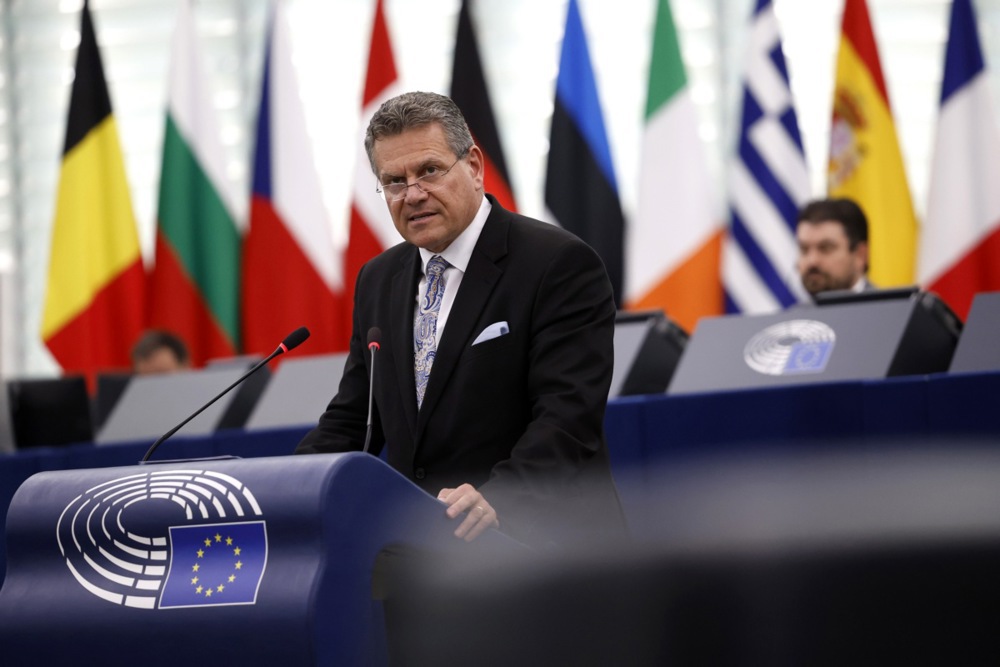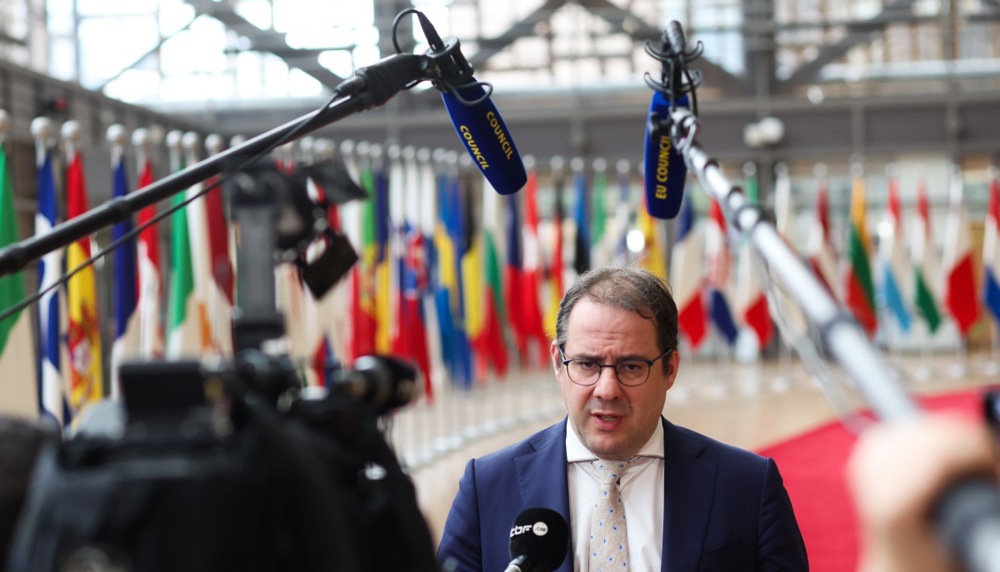Markets have rallied because investors said they believed the European Union may now get a Japan-style deal with the US — after Tokyo secured major concessions from Washington.
But, at the same time, Brussels has upped the pressure, pushing through a €93 billion package of retaliatory tariffs on July 24 and opening a highly tense summit with China the very same day.
“Accepting 15 per cent tariffs means giving in to fear,” Belgian Renew MEP Yvan Verougstraete said on July 24. “It means accepting the rules of whoever shouts the loudest … Instead of showing strength, we risk thanking [US President Donald] Trump for twisting our arm rather than breaking our nose.”
An EU diplomat who did not wish to be named told AFP the same day that EU member states had approved a €93 billion package of counter-tariffs on US goods. That would kick in from August 7 if talks with the US failed to secure the desired result. The EU list included previously agreed levies on €21 billion of US products.
The diplomat said the EU’s tougher stance came as Brussels and Washington appeared to be inching towards a deal with a baseline 15 per cent tariff on the bloc’s goods ahead of a US-set August 1 deadline.
An unnamed European Commission trade spokesperson told journalists on July 24 that the EU “continues to engage with the US intensively, politically and economically”.
The spokesperson said the tariff list had been proposed and voted on by an overwhelming majority of member states but had not yet been adopted by the EC itself.
Asked whether the tariffs would be implemented, the spokesperson said: “I cannot stipulate whether we will need this list.”
It was confirmed, though, that the tariffs “will automatically come into force if no negotiated solution is found”, but reiterated that “the priority of the Commission is a negotiated solution”.
The €93 billion package included tariffs on a broad range of US products, from energy and machinery to agricultural goods.
Tokyo’s agreement with Washington, reached on July 23, included a cut in US car tariffs from 27.5 per cent to 15 per cent, a $550 billion (468 billion) investment pledge in US industry such as semiconductors, energy, shipbuilding and pharmaceuticals, and a commitment to buy 100 Boeing aircraft. US agricultural imports to Japan would also increase.
Investors responded positively to the prospect that Europe could avoid harsher tariffs. European carmakers, considered potential US targets, led the rebound: At noon CEST on July 24, Stellantis had risen 9.14 per cent, Volkswagen gained 6.16 per cent and Mercedes-Benz climbed 5.76 per cent, topping the Euro Stoxx 50.
The Financial Times reported on July 23 that an EU–US deal based on a 15 per cent flat tariff was “imminent”, citing diplomats close to the talks.
Verougstraete said a day later: “The Europeans — Germany and Italy in particular — need to stop acting like small vulnerable countries. United at European level, we are strong enough to make the US bend. Instead, we’re trying to ‘limit the damage.’
“That’s short-term thinking. And we’ll pay for it later,” he warned.
The EU had previously criticised the UK’s decision to accept targeted US tariffs in exchange for carve-outs. Now the bloc risked ending up in a similar situation as Japan — but with fewer guarantees, experts said.
The Japan deal was praised at the EU–Japan summit on July 23. EC President Ursula von der Leyen said the agreement “comes at the right time” and she described Japan as a “front-runner” in securing supply chains and countering coercion.
Von der Leyen framed the Japan-US deal as a necessary response to mounting global trade tensions and geopolitical uncertainty.
She said that, beyond trade volumes, the agreement aimed to bolster economic security by securing supply chains and countering unfair practices, emphasising how the EU saw its negotiations with the US.
The trade spokesperson echoed this cautious optimism, telling journalists the EU “continues to engage with the US intensively, politically and economically” and that “as regards a deal, we believe such an outcome is in reach”.





